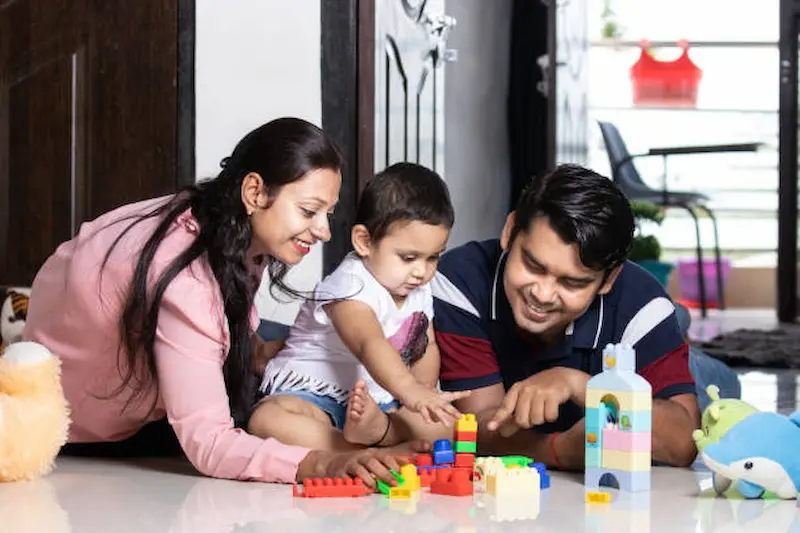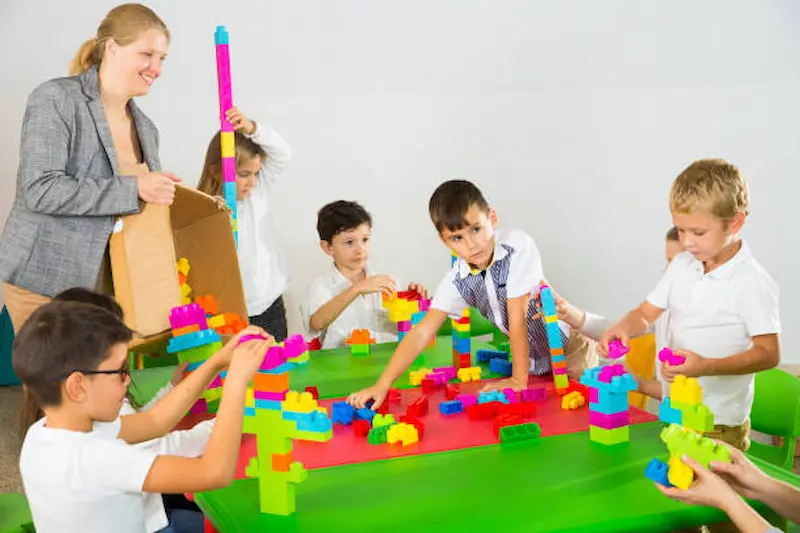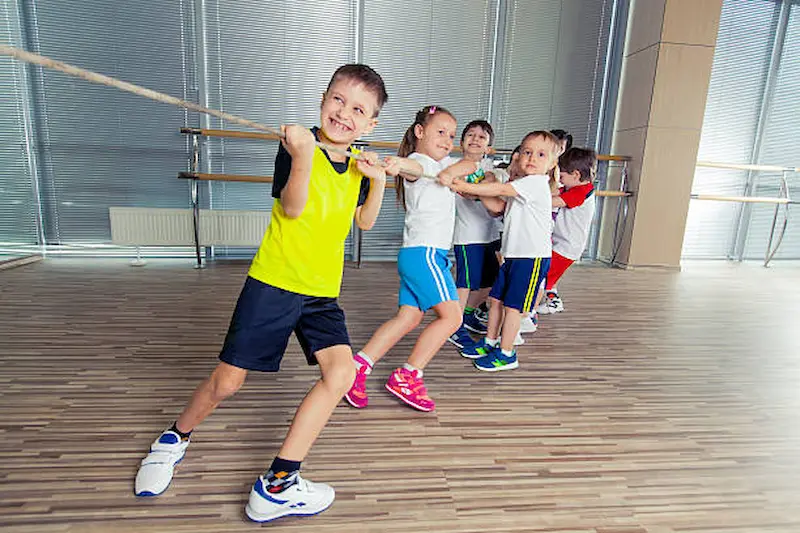Better Parenting Tips prioritize open communication, positive reinforcement, and setting clear expectations. Foster a positive and supportive environment for your child’s growth. Strong bonds contribute to emotional well-being and positive child development. Trust and understanding form the foundation for a healthy parent-child relationship. By prioritizing communication, positive reinforcement, and a supportive environment, parents lay the groundwork for a strong and nurturing relationship with their children. This foundation becomes essential for effective parenting, providing a framework for discipline, guidance, and shared growth. The importance of strong parent-child bonds cannot be overstated, as they foster emotional resilience and create a supportive atmosphere for a child’s overall well-being.
In this blog, discover Better Parenting Tips, emphasizing the significance of open communication, positive reinforcement, and setting clear expectations. These strategies create a nurturing environment, fostering trust and understanding between parents and children. By incorporating these tips, parents can enhance their parenting approach, promoting a positive and supportive atmosphere for their child’s growth and development.
Table of contents
Understanding Your Child

A. Recognizing Developmental Stages: Understanding your child begins with recognizing and appreciating their developmental stages. This awareness helps tailor parenting approaches to meet their evolving needs.
B. Effective Communication with Kids: Mastering effective communication involves active listening techniques and being attuned to non-verbal cues. This creates an open channel for meaningful parent-child interactions.
C. Nurturing Your Child’s Individuality: Embracing your child’s individuality fosters a supportive environment, allowing them to flourish authentically and develop a strong sense of self.
D. Empathy and Compassion in Parenting: Infusing parenting with empathy and compassion creates a nurturing atmosphere, promoting emotional well-being and a resilient parent-child bond.
Creating a Positive Home Environment

A. Building Trust and Mutual Respect: Establishing trust and mutual respect forms the bedrock of a positive home environment. Parents can achieve this by actively listening to their children, acknowledging their feelings, and involving them in decision-making processes.
B. Balancing Discipline and Freedom: Striking a balance between discipline and freedom is crucial. Clear expectations and consequences, coupled with opportunities for autonomy, foster a sense of responsibility and independence.
C. Fostering a Supportive Atmosphere: A supportive atmosphere encourages emotional well-being. By offering encouragement, celebrating achievements, and providing comfort during challenges, parents create an environment where children feel secure, valued, and understood.
D. Encouraging Openness and Honesty: Open communication and honesty are pillars of a positive home. Encouraging children to express themselves freely and truthfully nurtures trust, strengthens the parent-child bond, and promotes a harmonious and nurturing family dynamic.
Building Emotional Intelligence

A. Teaching Emotion Management: Building emotional intelligence starts with teaching children how to manage their emotions. Encouraging healthy ways to express and regulate feelings provides them with essential tools for navigating various social situations.
B. Modeling Emotional Awareness: Parents play a crucial role in building emotional intelligence by modeling emotional awareness. Demonstrating empathy, acknowledging emotions, and expressing them constructively set a positive example for children to follow.
C. Handling Tantrums and Emotional Outbursts: Effectively handling tantrums involves staying calm, offering comfort, and teaching alternative ways to express frustration. This approach helps children learn to manage intense emotions and develop coping strategies.
D. Empowering Kids to Express Their Feelings: Empowering children to express their feelings fosters open communication. By validating their emotions and providing a safe space for expression, parents contribute to the development of emotional intelligence, laying the foundation for healthier relationships and effective self-regulation.
Strengthening the Parent-Child Relationship

A. Quality Time vs. Quantity Time: Prioritizing quality time over quantity strengthens the parent-child bond. Focused interactions, active listening, and shared activities foster a deeper connection and understanding between parents and children.
B. Creating Family Traditions and Rituals: Establishing family traditions and rituals builds a sense of identity and togetherness. Whether through shared meals, celebrations, or simple routines, these traditions create lasting memories and reinforce the family unit.
C. The Power of Play: Incorporating play into daily interactions enhances the parent-child relationship. Playful activities promote communication, creativity, and mutual enjoyment, fostering a positive and joyful atmosphere within the family.
D. Celebrating Milestones and Achievements: Acknowledging and celebrating milestones, both big and small, strengthens the parent-child relationship. Recognition and praise for achievements instill confidence and create a supportive environment, reinforcing the importance of shared success within the family.
Promoting Healthy Development
A. Nutrition and Physical Well-being: Prioritizing nutrition and physical well-being is paramount for a child’s healthy development. A balanced diet, rich in essential nutrients, coupled with regular exercise, lays the foundation for optimal growth and overall health. Integrating mindfulness activities for kids into daily routines further enhances well-being by promoting mental and emotional health.
B. Sleep and Routine: Establishing consistent sleep patterns and routines contributes significantly to a child’s well-being. A proper sleep schedule supports physical and cognitive development, enhances mood regulation, and ensures overall emotional resilience.
C. Intellectual and Creative Stimulation: Nurturing a child’s intellectual and creative faculties is vital. Providing stimulating activities and age-appropriate challenges fosters cognitive development, curiosity, and a lifelong love for learning.
D. Encouraging Hobbies and Interests: Supporting a child’s exploration of hobbies and interests, including watching educational videos for kids, contributes to well-rounded development. Whether in sports, arts, or academics, these pursuits enhance skill-building, boost self-esteem, and instill a sense of accomplishment, promoting a holistic approach to healthy growth and lifelong fulfillment.
Handling Challenging Situations

A. Dealing with Sibling Rivalry: Addressing sibling rivalry involves promoting open communication, teaching conflict resolution, and fostering a sense of teamwork. By emphasizing shared goals and individual strengths, parents can create a harmonious sibling dynamic.
B. Addressing Bullying and Peer Pressure: Effectively handling bullying and peer pressure requires open dialogue, teaching assertiveness, and building resilience. Parents play a pivotal role in empowering children to navigate social challenges with confidence and make informed decisions.
C. Coping with Academic Pressure: Managing academic pressure involves creating a balanced approach to education. Encouraging effective study habits, setting realistic expectations, and providing emotional support helps children cope with academic challenges while maintaining overall well-being.
D. Supporting Kids Through Transitions: Whether it’s a move, a new school, or a family change, supporting kids through transitions involves maintaining open communication, addressing concerns, and offering reassurance. Providing stability and understanding during transitions contributes to a child’s emotional resilience and adaptability.
Technology and Parenting

A. Setting Screen Time Limits: Setting reasonable screen time limits is vital in ensuring a healthy balance. Establishing clear boundaries helps children engage in a diverse range of activities, promoting physical well-being and cognitive development.
B. Monitoring Online Activities: Regularly monitoring online activities safeguards children from potential risks and inappropriate content. Parental involvement, including discussions about online games for kids, fosters a safe digital environment, allowing for open communication about online experiences.
C. Balancing Technology with Real-World Experiences: Encouraging a balance between technology use and real-world experiences is crucial. Outdoor activities, reading, and social interactions contribute to a well-rounded development, promoting social skills and a diverse range of interests.
D. Cyberbullying Awareness: Raising awareness about cyberbullying is essential. Educating children about responsible online behavior, promoting empathy, and fostering open communication equips them to navigate the digital world safely, promoting a positive and respectful online presence. Integrating values such as teaching kids kindness further emphasizes the importance of treating others with respect and compassion, both online and offline.
Conclusion
Better Parenting Tips involve adopting strategies that prioritize open communication, positive reinforcement, and setting clear expectations. These tips aim to create a nurturing and supportive environment, fostering trust and understanding between parents and children. The benefits include enhanced parent-child relationships, improved communication skills, and the promotion of positive behavior, contributing to the overall well-being and development of the child.
Elevate your child’s learning journey with BrightChamps, the leading EdTech company offering a transformative blend of robotics, financial education, and coding courses.
To get your hands on more such articles, educational content, and free resources on coding for kids, robotics courses, game development, etc., check out the BrightCHAMPS Blog Page now!
Frequently Asked Questions ( FAQs )
A1. Improve your child’s self-esteem by offering genuine praise, encouraging their efforts, and fostering a supportive and accepting environment.
Q2. What are effective discipline strategies?
A2. Effective discipline strategies involve clear communication, setting consistent expectations, and implementing consequences that promote learning and responsibility.
Q3. How do I handle a picky eater?
A3. Handle a picky eater by introducing a variety of healthy foods, involving them in meal preparation, and maintaining a positive mealtime atmosphere.
Q4. How to manage screen time for children?
A4. Manage screen time for children by setting reasonable limits, promoting educational content, and encouraging a balanced mix of physical activities and other interests.
Q5. What should I do if my child is being bullied?
A5. Address bullying by listening to your child, reporting incidents to school authorities, teaching assertiveness, and fostering resilience through emotional support and communication.


 We are an army of educators and passionate learners from BrightChamps family, committed to providing free learning resources to kids, parents & students.
We are an army of educators and passionate learners from BrightChamps family, committed to providing free learning resources to kids, parents & students.
















